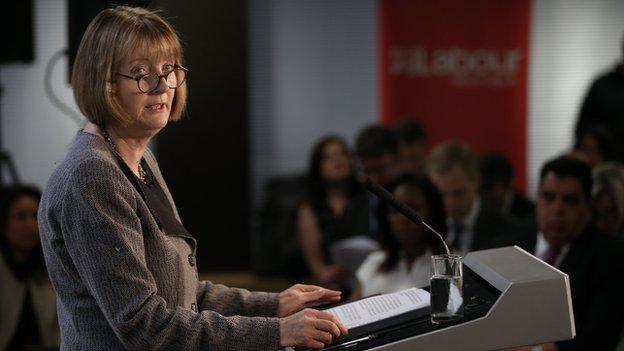Labour and the unions: Members, donations and elections
- Published
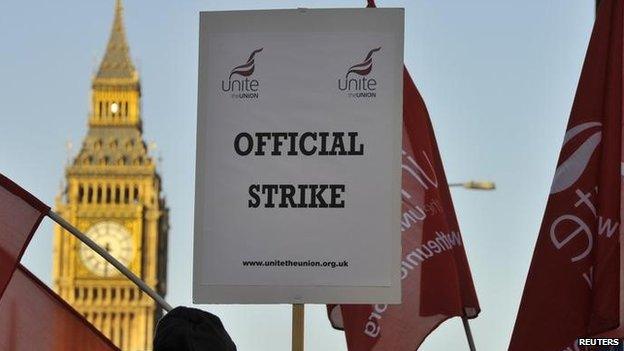
Labour has historic ties with the union movement but its relationship has not always been an amicable one
Labour's relationship with the trade unions is under the spotlight again as the party's leadership contest gets under way and following criticism by outgoing Scottish Labour leader Jim Murphy of the influence of the Unite union.

How important are trade unions to the Labour Party?
The Labour Party grew out of the trade union movement at the beginning of the 20th Century when, following a special trade union conference, the Labour Representation Committee (LRC) was formed out of unions and other left wing organisations.
The LRC sponsored the first two Labour MPs elected in 1900.
Today many Labour MPs come from trade union backgrounds or have close links to unions. In fact, you must be a member of a trade union to be eligible to seek selection as a Labour candidate, unless for some reason you have been prevented from doing so.
The old system of direct trade union sponsorship of MPs no longer exists, but many Labour MPs receive substantial donations to their constituency party.
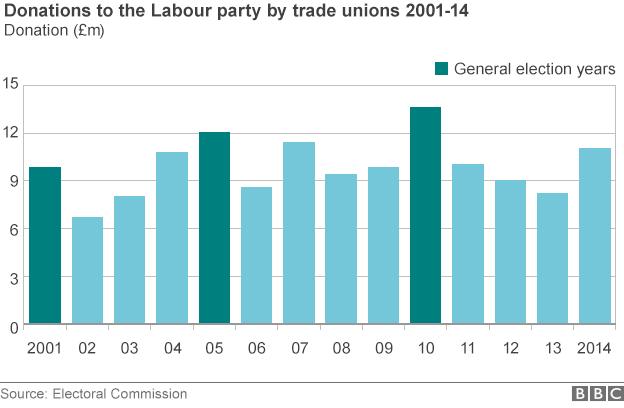

What's changed?
In 2013, former leader Ed Miliband proposed historic reforms to the relationship between the party and the unions following a row over candidate selection in Falkirk.
A special Labour Party conference passed party reforms in March 2014, bringing in one member one vote for Labour leadership elections and opt-in for trade union affiliate Labour members.
The old electoral college, which gave unions, party members and MPs/MEPs a third of the vote each, was abolished.
For the next leader, voting will take place on a one-member-one-vote basis in a single section comprising Labour Party members, affiliated trade union supporters and registered supporters.

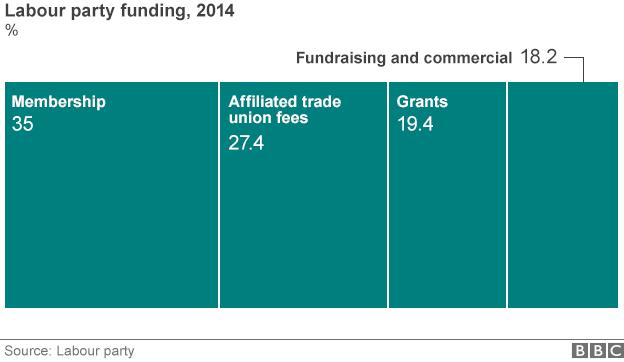
How much money does Labour get from the trade unions?
The trade unions provide the majority of recorded donations to Labour and in the past it has been income Labour could rely upon.
In 2014 unions donated around £11m to Labour, accounting for about 58% of total donations received that year. Its top donors were Unite, Unison and Usdaw.
The Electoral Commission's donation figures include the affiliation fees that trade unions pay to the Labour Party in return for the privileges of affiliated membership for themselves and their members.
For a union to affiliate nationally, it must pay £3 from its political fund for each member that it wishes to affiliate. But the way in which trade union members affiliate to Labour is undergoing changes at the moment.
Previously trade union members had been automatically affiliated to the Labour Party unless they pro-actively chose to opt out. Now they must choose to opt-in.
Trade unions will still collect a levy from their members but this will go into their own political funds rather than automatically to Labour, though they can still chose to donate this money to Labour if they wish to.
Some argue that this puts Labour's finances at risk, whilst other see it as an opportunity to change the party's funding base.
Labour highlights the income it receives in donations too small to be registered with the Electoral Commission. Figures released to the BBC show that small donations and membership accounted for 35% of Labour's income in 2014.

How many affiliated trade union supporters does Labour have now?
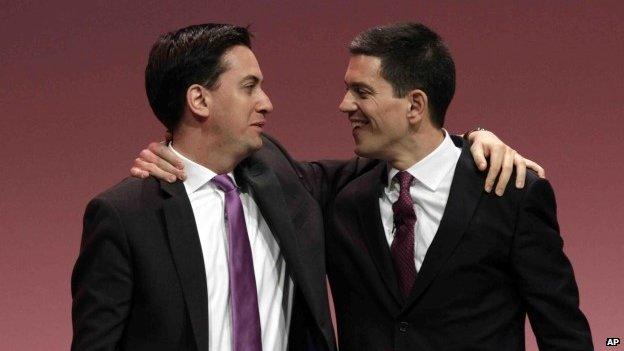
Unions' role in Ed Miliband's victory over his brother David in 2010 has caused controversy ever since
In the 2010 Labour leadership election, about 2.7 million ballot papers were distributed to trade unionists.
No-where near that many trade unionists will be entitled to a say this time around.
Currently the party has just 500 affiliate trade union supporters who have 'opted-in' under the new system, though Labour expects that figure to go up massively in the coming months as the trade unions begin a recruitment drive.
- Published18 May 2015
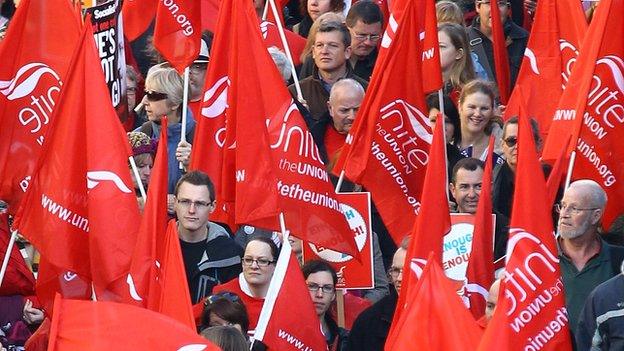
- Published18 May 2015
